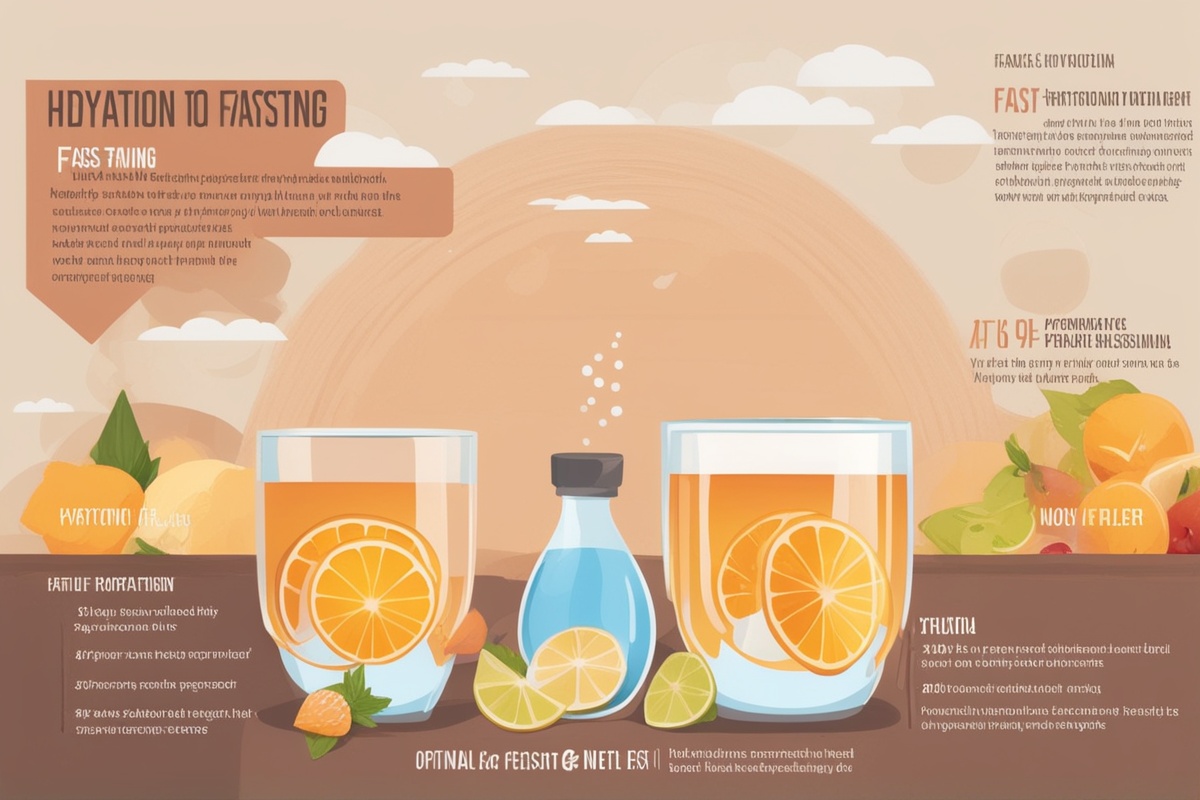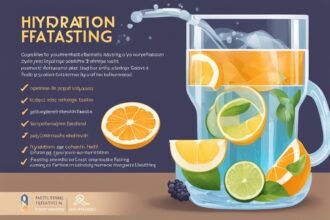Fasting, whether for religious, health, or personal reasons, is a practice that requires careful attention to the body’s needs. One of the most critical aspects to manage during fasting is hydration. Staying hydrated while fasting can be challenging, especially during extended periods without food or drink, such as during Ramadan or intermittent fasting. This comprehensive guide explores the importance of hydration during fasting, offers practical tips for maintaining fluid balance, and addresses common concerns to ensure your fasting journey is safe and sustainable.
Why Staying Hydrated While Fasting Is Essential
Hydration is vital for overall health, as water plays a key role in regulating body temperature, aiding digestion, and supporting organ function. When fasting, the body is already under stress due to the absence of regular food and fluid intake. Dehydration can lead to symptoms such as fatigue, headaches, dizziness, and difficulty concentrating. In severe cases, it can even result in more serious health issues like kidney problems or heatstroke. Staying hydrated while fasting helps mitigate these risks, ensuring that your body continues to function optimally even during periods of restriction.
During fasting, especially in hot climates or during long daylight hours, the risk of dehydration increases. Understanding how to prioritize hydration during non-fasting hours or through permissible methods can make a significant difference in how you feel and perform throughout the day.
Understanding Dehydration Risks During Fasting
Dehydration occurs when the body loses more fluids than it takes in, and fasting can exacerbate this imbalance. For example, during Ramadan, Muslims abstain from food and drink from dawn to sunset, which can span 12–18 hours depending on the time of year and location. Without proper planning, this prolonged period without water can lead to mild to moderate dehydration, especially if physical activity or heat exposure is involved.
Common signs of dehydration include dry mouth, dark urine, lethargy, and irritability. Recognizing these symptoms early and taking steps to address them during allowed eating and drinking windows is crucial for staying hydrated while fasting. It’s also important to note that certain groups, such as pregnant women, the elderly, or those with medical conditions, may be at higher risk and should consult healthcare providers before fasting.
Tips for Staying Hydrated While Fasting
While you may not be able to drink water during fasting hours, there are strategies to maximize hydration before and after your fast. Here are some actionable tips to help you stay hydrated:
- Drink Plenty of Water During Non-Fasting Hours: Make it a priority to hydrate as soon as your fasting window ends. For example, during Ramadan, break your fast with water or hydrating foods before moving on to heavier meals. Aim for at least 8–10 glasses of water between sunset and dawn.
- Choose Hydrating Foods: Incorporate water-rich foods like watermelon, cucumber, oranges, and soups into your meals. These foods can contribute significantly to your fluid intake and help with staying hydrated while fasting.
- Avoid Dehydrating Beverages: Limit caffeine and sugary drinks, as they can act as diuretics, increasing fluid loss. Opt for plain water or herbal teas instead.
- Plan Your Fluid Intake: If your fasting schedule allows for pre-dawn meals (like Suhoor during Ramadan), drink water steadily during this time to prepare your body for the day ahead.
By being mindful of your fluid intake during permissible hours, you can better manage hydration levels and reduce the risk of dehydration.
Special Considerations for Different Types of Fasting
Not all fasting practices are the same, and hydration strategies may vary depending on the type of fast you’re observing. For instance, intermittent fasting (IF) often allows water and non-caloric beverages during fasting windows, making it easier to stay hydrated. On the other hand, religious fasts like Ramadan or Yom Kippur typically prohibit any intake, requiring careful planning around fasting hours.
For those practicing intermittent fasting, consider sipping water or black coffee (without sugar or cream) during fasting periods to maintain hydration without breaking the fast. If you’re observing a dry fast, where no liquids are consumed, it’s even more critical to hydrate thoroughly before and after the fasting period. Always tailor your approach to the specific guidelines of your fast and listen to your body’s signals. For more insights on intermittent fasting, check out our post on Intermittent Fasting Basics.
How to Monitor Hydration Levels While Fasting
Keeping track of your hydration status can help you adjust your habits and ensure you’re staying hydrated while fasting. One simple way to monitor hydration is by observing the color of your urine—pale yellow indicates good hydration, while dark yellow or amber suggests you need more fluids. Other indicators include skin elasticity (pinch your skin; if it snaps back quickly, you’re likely hydrated) and how often you feel thirsty.
If you experience persistent symptoms of dehydration, such as confusion or rapid heartbeat, it’s important to seek medical attention. Additionally, wearable devices or hydration tracking apps can provide reminders to drink water during non-fasting hours. For more tips on tracking health metrics, explore our guide on Using Technology for Health Monitoring.
Myths and Misconceptions About Hydration During Fasting
There are several myths surrounding hydration and fasting that can lead to confusion. One common misconception is that drinking too much water at once (such as right after breaking a fast) can “shock” the system. While it’s true that overhydration can cause discomfort, sipping water gradually is perfectly safe and effective for staying hydrated while fasting.
Another myth is that you can’t hydrate effectively during short eating windows. In reality, with the right choices—such as hydrating foods and electrolyte-rich drinks—you can replenish fluids efficiently. Dispelling these myths is key to adopting a healthy approach to fasting. Learn more about common fasting myths in our article on Debunking Fasting Myths.
Disclaimer: The information provided in this article is for educational purposes only and should not be considered medical advice. Fasting and hydration needs vary from person to person, and certain individuals, such as those with medical conditions, pregnant or breastfeeding women, or the elderly, should consult a healthcare professional before fasting. Always prioritize your health and safety, and seek guidance from a qualified provider if you have concerns about staying hydrated while fasting.
References
- Mayo Clinic: Water: How much should you drink every day?
- Harvard Health: The importance of staying hydrated
- CDC: Water and Healthier Drinks
- WHO: Healthy Diet Fact Sheet
- British Nutrition Foundation: Hydration
This content is for informational purposes only and not a substitute for professional advice.






